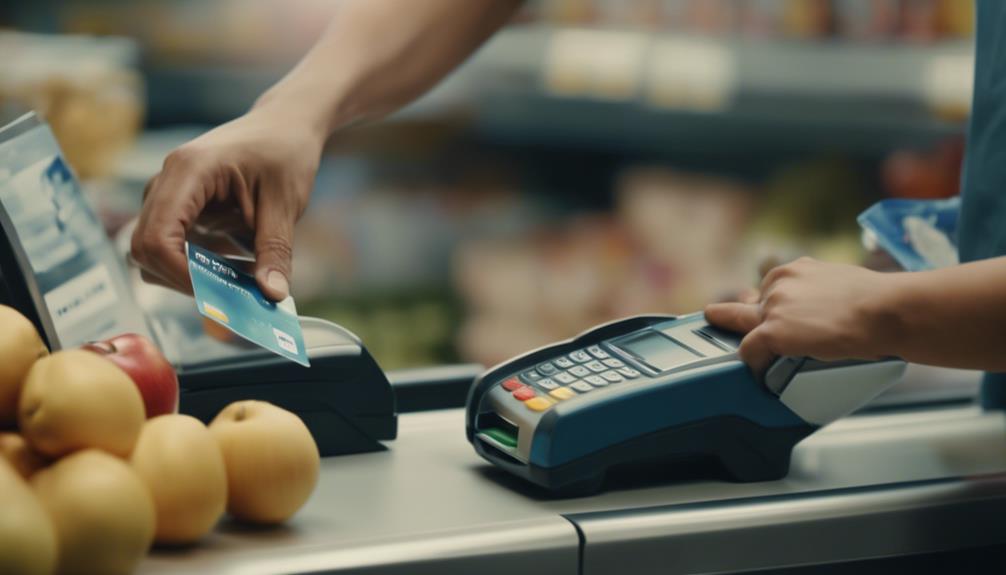You may not know that transaction processing services are offered by a diverse range of entities, including banks, financial services, payment gateways, fintech companies, and specialized transaction processing firms. The landscape of transaction processing providers is continuously evolving to meet the increasing demands of the digital economy. Understanding the key players in this ecosystem can shed light on the complexities and innovations driving the seamless execution of financial transactions.
Banks
Banks play a crucial role in the realm of transaction processing services by facilitating various financial activities for individuals and businesses. When it comes to online banking services, banks offer customers the convenience of managing their accounts, transferring funds, and paying bills through secure digital platforms. Security measures such as encryption protocols and multi-factor authentication are commonly employed to safeguard sensitive information and prevent unauthorized access to online banking systems.
Moreover, banks also provide mobile payment solutions that enable users to make transactions using their smartphones or other mobile devices. These services offer convenience and flexibility, allowing customers to pay for goods and services quickly and securely. However, it is essential to be aware of the transaction fees associated with mobile payment solutions, as these fees can vary depending on the bank and the type of transaction being conducted.
Financial Services
In the realm of transaction processing services, financial institutions offer a wide range of financial services beyond traditional banking activities. Online banking has become a staple service provided by most financial institutions, allowing you to manage your finances conveniently from your computer or mobile device. Mobile wallets have also gained popularity, enabling you to make payments and store your payment information securely on your smartphone.
Credit unions, while similar to banks, are member-owned financial cooperatives that offer a variety of financial services to their members. They often provide competitive rates on loans and savings accounts, focusing on the well-being of their members rather than profits. Peer-to-peer lending platforms have emerged as an alternative to traditional banking services, connecting individuals looking to borrow money with potential lenders. These platforms provide a streamlined process for obtaining loans and offer opportunities for individuals to invest in others. Financial institutions continue to innovate and expand their services to meet the evolving needs of consumers in today’s digital age.
Payment Gateways
Payment gateways play a crucial role in facilitating secure online transactions between customers and businesses. When choosing a payment gateway, it’s essential to consider the security measures it offers. Look for gateways that are PCI DSS compliant, encrypt data, and provide fraud prevention tools to ensure safe transactions. Additionally, reliable customer support is key in resolving any issues promptly.
Integration options are another vital aspect to assess. A good payment gateway should seamlessly integrate with your existing e-commerce platform or website, making the checkout process smooth for customers. This integration enhances the overall user experience, reducing cart abandonment rates and increasing customer satisfaction.
In evaluating payment gateways, prioritize those that offer a straightforward user interface for both customers and merchants. A well-designed interface contributes to a positive user experience, making transactions quick and efficient. By considering security measures, customer support, integration options, and user experience, you can select a payment gateway that meets your business needs effectively.
Fintech Companies
When exploring the modern financial technology landscape, Fintech companies have emerged as key players revolutionizing traditional financial services. These companies are at the forefront of technology innovation and are driving digital transformation in the financial sector.
- Fintech companies leverage cutting-edge technology to create innovative solutions that streamline financial processes and provide more accessible services to consumers.
- Through advanced algorithms and data analytics, Fintech companies are able to offer personalized financial products and services tailored to individual needs, enhancing the overall customer experience.
Transaction Processing Companies
Transaction processing companies play a vital role in facilitating seamless and secure financial transactions across various industries. These companies leverage technology advancements to ensure that transactions are processed efficiently and accurately. With the increasing demand for digital payments and online transactions, transaction processing companies are constantly evolving to meet the needs of the global market trends.
In today’s digital age, technology advancements such as artificial intelligence and blockchain have revolutionized the way transactions are processed. These innovations have enhanced security measures, reduced processing times, and improved overall transaction experiences for businesses and consumers alike.
Global market trends also play a significant role in shaping the strategies and services offered by transaction processing companies. As the world becomes more interconnected, these companies are expanding their reach to cater to international markets and diverse payment preferences.
Frequently Asked Questions
Are Transaction Processing Services Regulated by Any Specific Industry Standards?
Regulatory compliance for transaction processing services is crucial, ensuring security and reliability. Various industry certifications like PCI DSS govern standards. Compliance is vital for safeguarding sensitive data and maintaining trust with customers.
How Do Transaction Processing Companies Protect Sensitive Customer Data?
When handling sensitive customer data, transaction processing companies safeguard it through robust cybersecurity measures and encryption methods. By implementing stringent protocols, they ensure the protection of personal information from potential cyber threats and unauthorized access.
Can Businesses Switch Transaction Processing Providers Easily?
Switching providers can be a complex process, requiring careful planning and coordination. The ease of transition depends on factors such as data migration, system integration, and contract terms. Evaluate the pros and cons before making a decision.
What Are the Key Differences Between Traditional Banks and Fintech Transaction Processors?
Imagine two paths: traditional banks, steady but bureaucratic. Fintech, agile and innovative. Banks prioritize regulatory compliance, fintech excels in customer experience. Banks struggle with tech integration, fintech leads in cost efficiency.
How Do Payment Gateways Ensure Secure Online Transactions?
To ensure secure online transactions, payment gateways implement robust encryption methods to protect sensitive data. They also employ sophisticated fraud prevention measures to detect and mitigate any potential threats, safeguarding your transactions and personal information.



